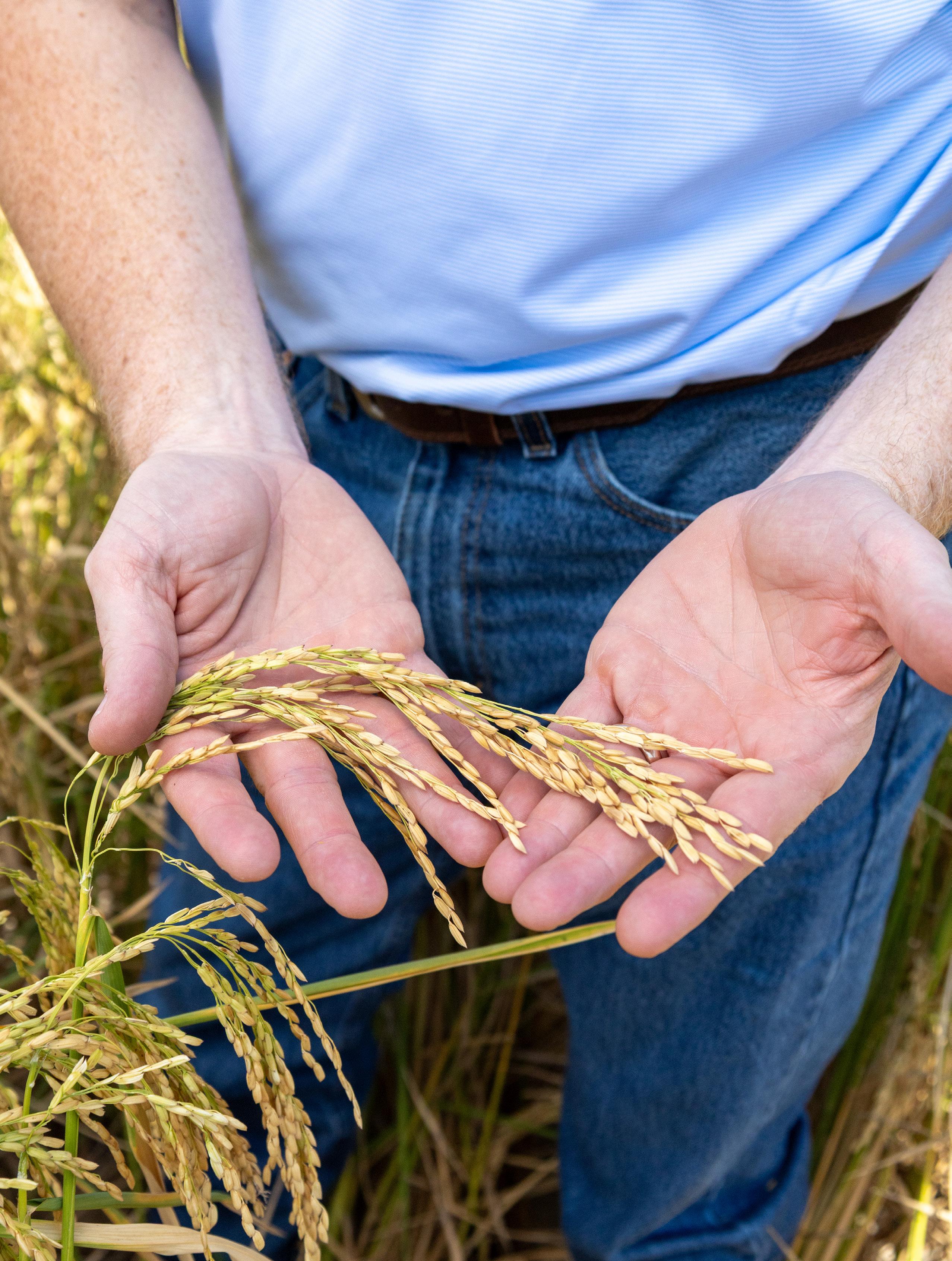



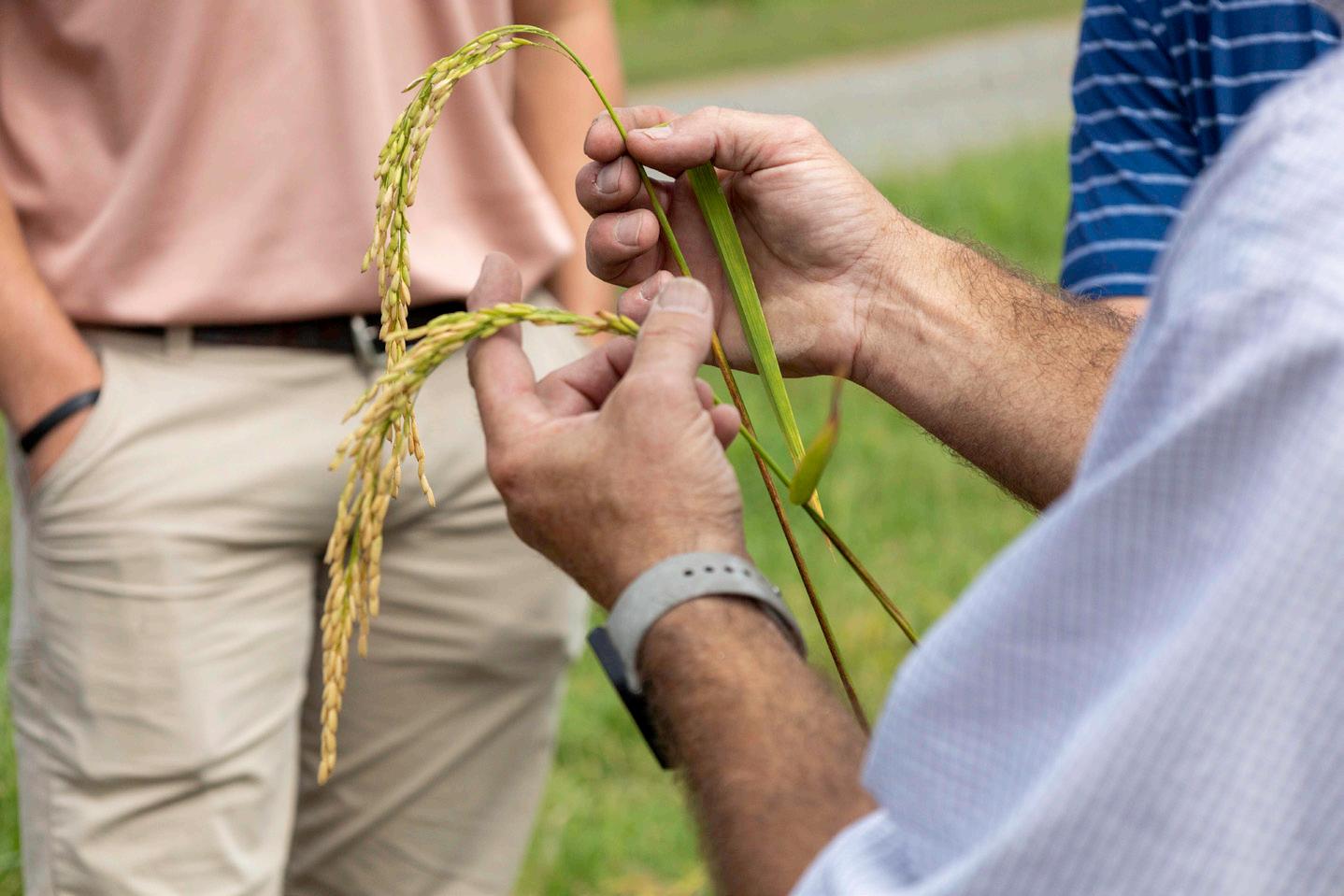










To our valued members,
My annual report this year to you, our membership, our owners, our farmers, is going to be positive, I promise. However, before I continue, I want each and every one of you reading this column to know that I fully and personally understand the magnitude of the current economic challenges facing our farms and rural communities. I feel that I must first and foremost acknowledge this because it is the most challenging time many of us have had to endure in our careers. Make no mistake, your board of directors is fully cognizant and carries that same enormous weight of the stress that has cruelly settled on all of our backs over the last several years.
Whether it’s your local newspapers, national or state news, or social media, our plight and situation have been discussed a lot. So, in this report, I’m going to be very sensitive to these very trying times, but I want to share with you the silver lining, the good news, if you will.
The good news starts with the enormous changes our co-op has undertaken in its business. The men and women on our staff, in all departments, from top to
bottom, have worked extremely hard to make us better. That has come with making tough decisions. It has not been easy, whatsoever, to make us profitable. Getting back to profitability in any business is not easy, but our staff has been relentless in making our business better now, while also positioning it for future success. Kevin McGilton, our CEO, has led that charge, and our extremely talented staff have all pulled that rope together to make our cooperative better. As a farmer, I can’t thank them enough for the long hours and all their hard work this year. I can tell you that it has made a positive difference for our farmers during these turbulent economic times.
The commodities that each one of us grow on our farms have different characteristics and serve different needs. But rice, the commodity itself, is different, and the politics involved in the trade of this grain is as complicated as it gets. We have always been told that oil is the most precious commodity traded, but I would put rice right up there, because when you’re hungry, you can’t eat oil. That’s probably a primitive way of looking at it, but it is very obvious to me. Over half of the population on the earth eats rice at least once a day as a staple. Again, that makes rice a highly political commodity in world trade.
The reason I bring this up is that when politics is inflicted in the trade and the price attached to rice, it gets extremely complicated. It gets complicated with our farm policy here in the United States, and very difficult with the governments of other rice-producing and rice-consuming countries. So, without going on a deep dive
into global policy issues, I did want to tell you that Riceland is involved in trying to help our farmers have a positive relationship with our representatives in our nation’s capital, along with other groups, to navigate the world rice trade.
Like it or not, rice is political, and we, as farmers here in the U.S., can compete against any farmer in the world in growing a safe and abundant crop. But we, as individual farmers, can’t compete against foreign governments that would love to dictate what our families put on their plates every night and what we pay them for it. So, needless to say, strong farm policy is needed not just for farmers, but it


is a necessity for every single family in our nation. Yes, it is extremely complicated.
My hope and prayer is that our most challenging times in agriculture are behind us. But trying to forecast that is impossible. However, I can tell you that your Riceland Foods Cooperative has had a good year, and in this environment, that’s a notable achievement.
Thank you for being a member of this cooperative that does so much, for so many.
RICH HILLMAN CHAIRMAN, RFI BOARD OF DIRECTORS


BEN NOBLE EVP, CHIEF OPERATING OFFICER

CRAIG PARR CHIEF FINANCIAL OFFICER


KEVIN MCGILTON PRESIDENT & CHIEF EXECUTIVE OFFICER
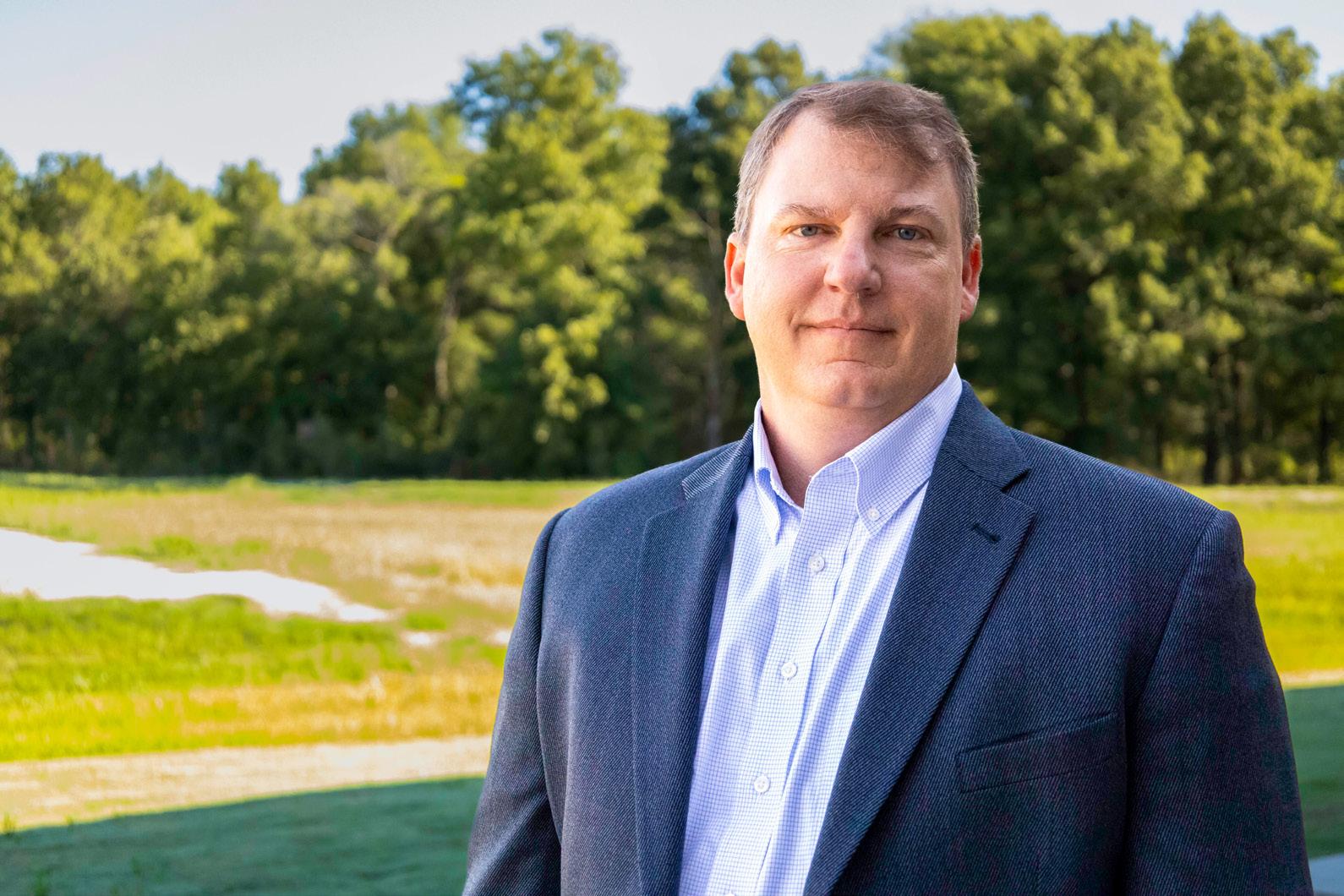
CHIEF LEGAL OFFICER & SECRETARY
CHIEF HUMAN RESOURCES OFFICER

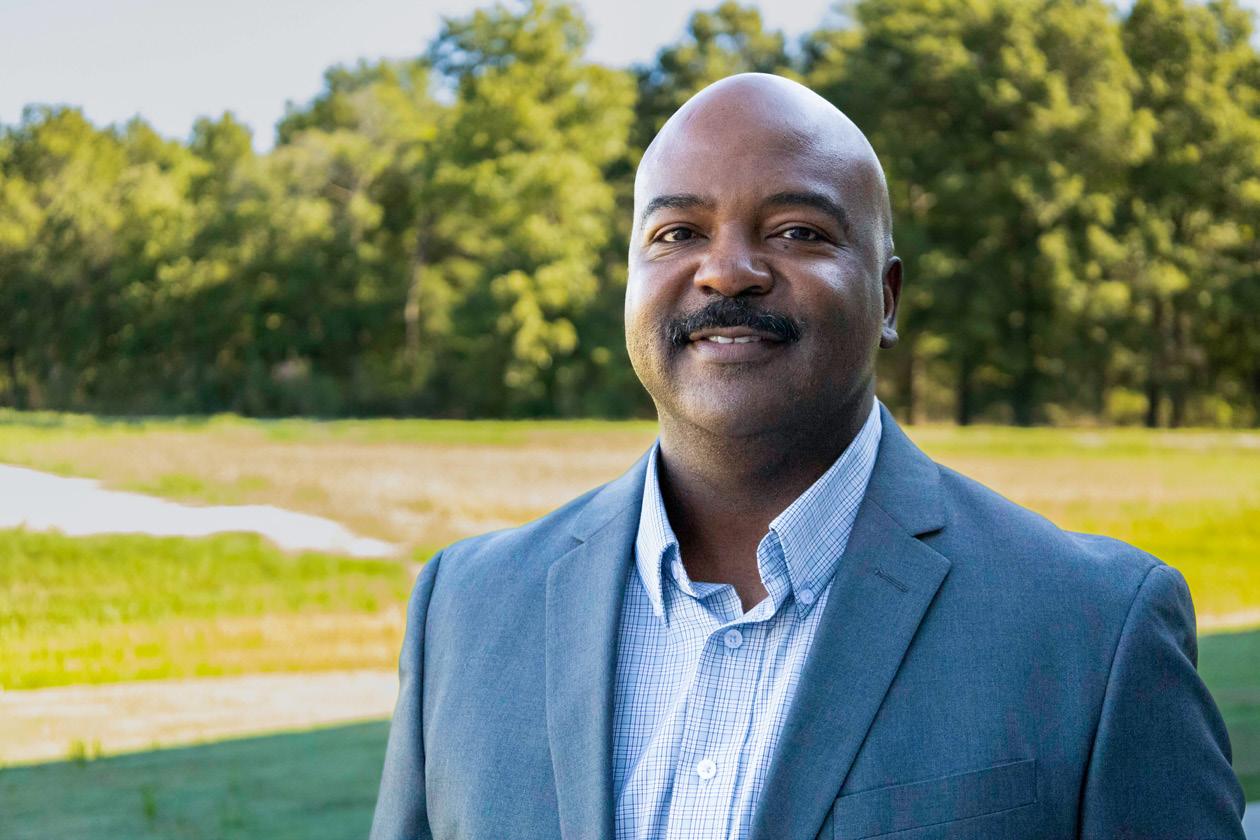
ADAMSON VP, MARKETING & COMMUNICATIONS
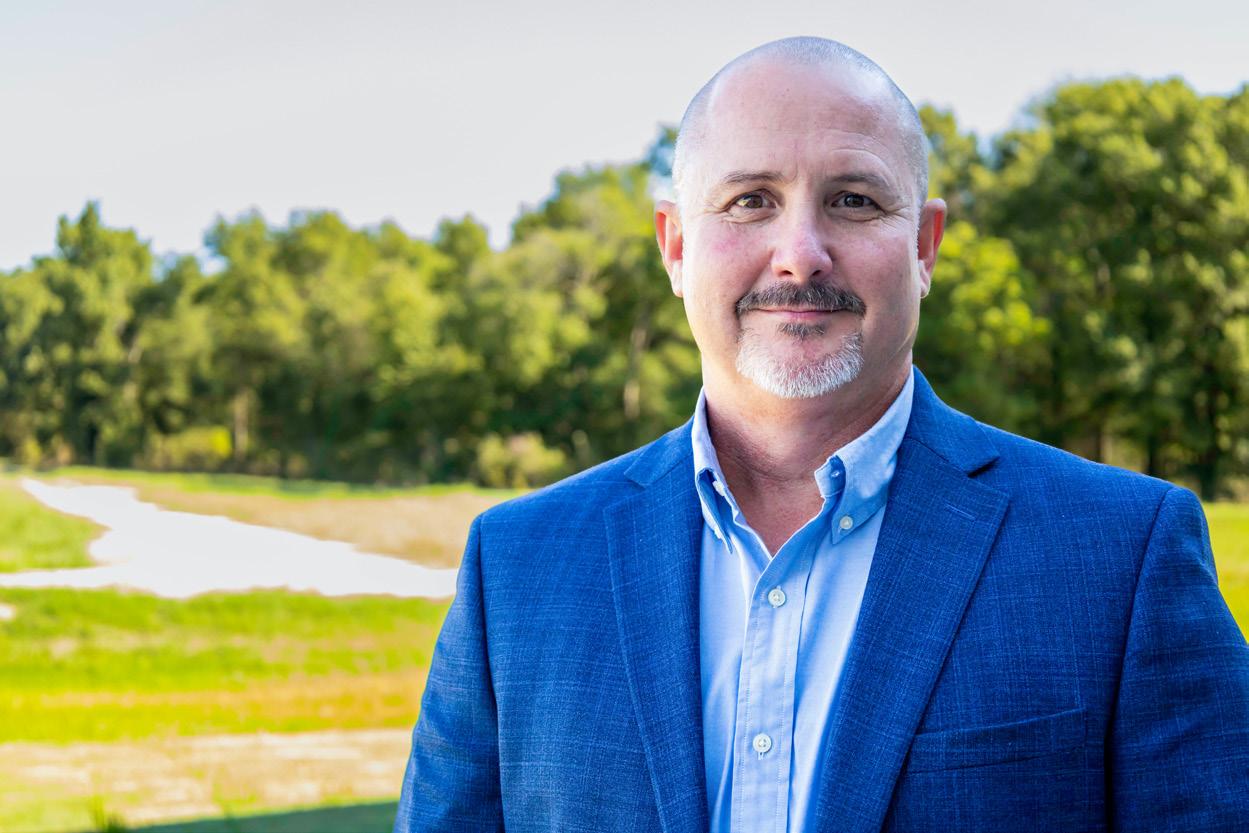
FY25 was a remarkable turnaround for the Rice Division! The Drier Division got the year started by getting the crop safely and efficiently under cover, and once again serviced the membership at a high level. The marketing year began with a high degree of uncertainty regarding the milling quality of the crop, and the impact quality would have on prices. Our rice division teams responded with a high level of communication and collaboration, resulting in a profitable year. I am extremely proud of the collective work from the entire team, and the membership should also be proud of all our team members who come to work every day to serve this cooperative.
Riceland’s seasonal pools for long grain and medium grain rice outperformed the estimated USDA Season Average Price and outperformed other rice marketing pools in our service area.
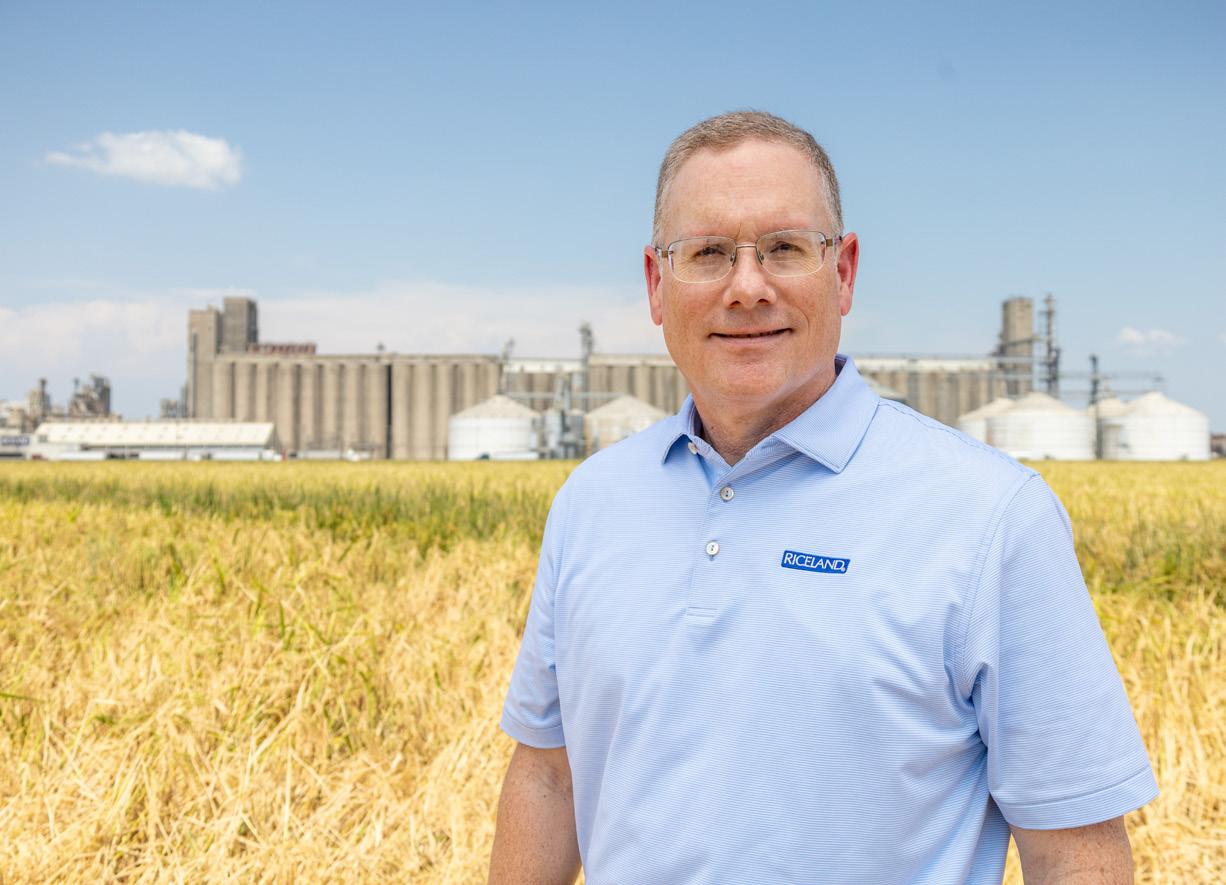
The Soybean Division turned in its fourth profitable year in a row in spite of a very difficult market! New crush capacity coming online in the United States oversupplied the market, which put pressure on prices and basis levels for soybean oil and meal.
The soy division team outperformed once again by operating a complex facility while safely and efficiently producing some of the highest quality soy meal and oil in the country. I am proud of this dedicated group that serves the Riceland membership and excels in a difficult industry. Their efforts led to Riceland’s seasonal pool for soybeans outperforming the estimated USDA Season Average Price.
With the Rice and Soy Division both turning a profit in FY25, your cooperative can return more patronage profits to the membership, which could not come at a better time with the current state of the agricultural economy.
As a farmer-owned cooperative, we stand on this “Common Ground” together. Striving to improve our cooperative to return more value to the membership, work collectively to keep our membership on their farms producing sustainable crops, and supporting our rural communities to improve the quality of life in the areas we serve. Common Ground is more than a theme; it is the heartbeat of the co-op.
GO Big Blue!

KEVIN MCGILTON PRESIDENT & CEO
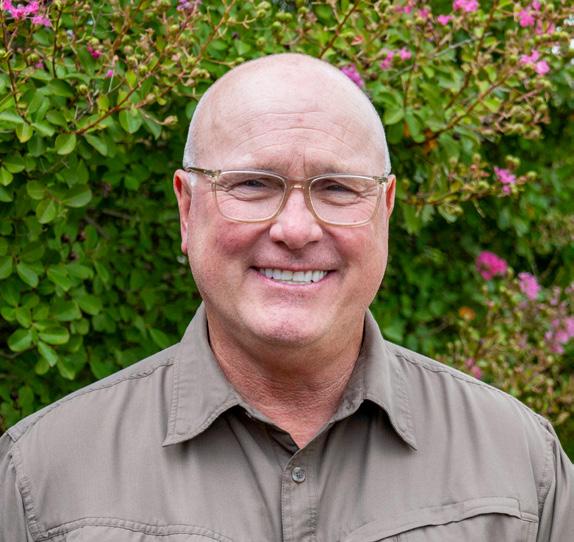
RICH HILLMAN DISTRICT 1 DISTRICT 2 VICE CHAIRMAN

SETH SKARDA DISTRICT 1 CHAIRMAN

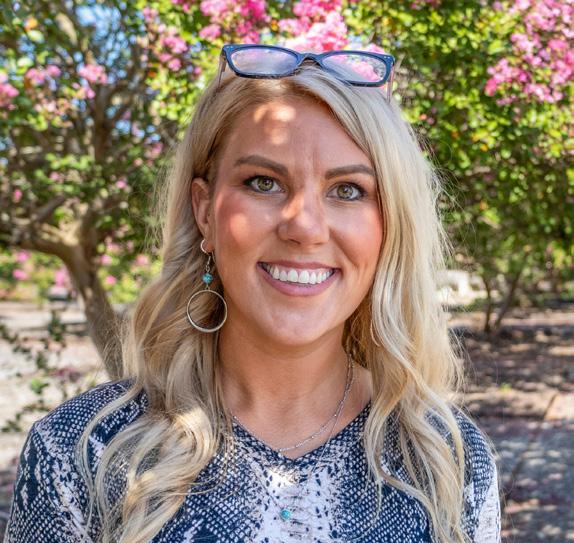
MIKKA FELTY

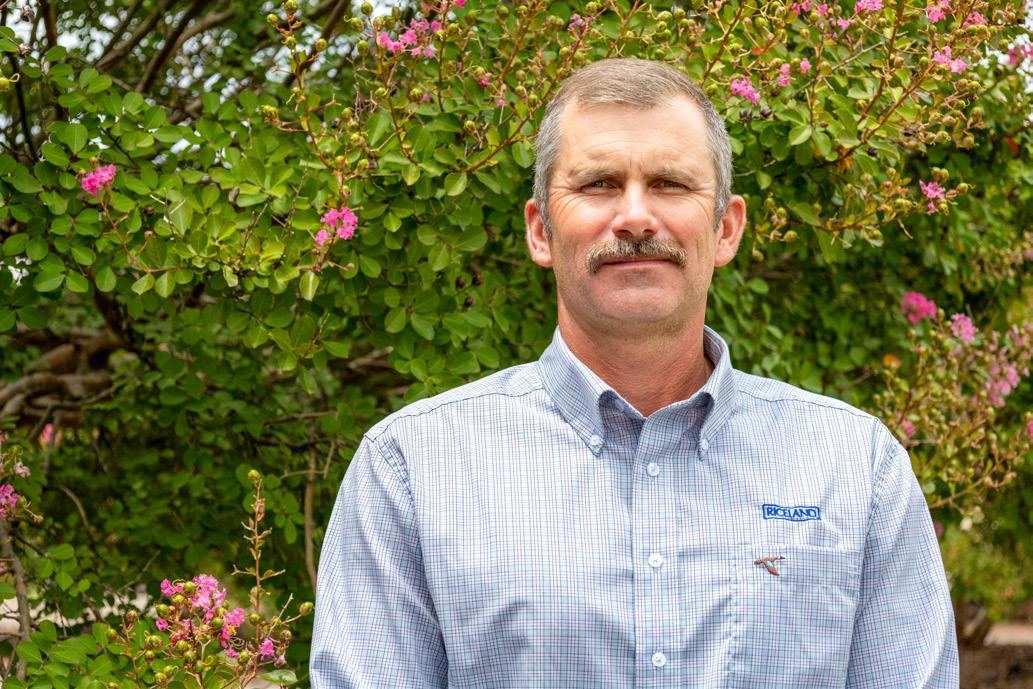
CLAY SCHAEFER
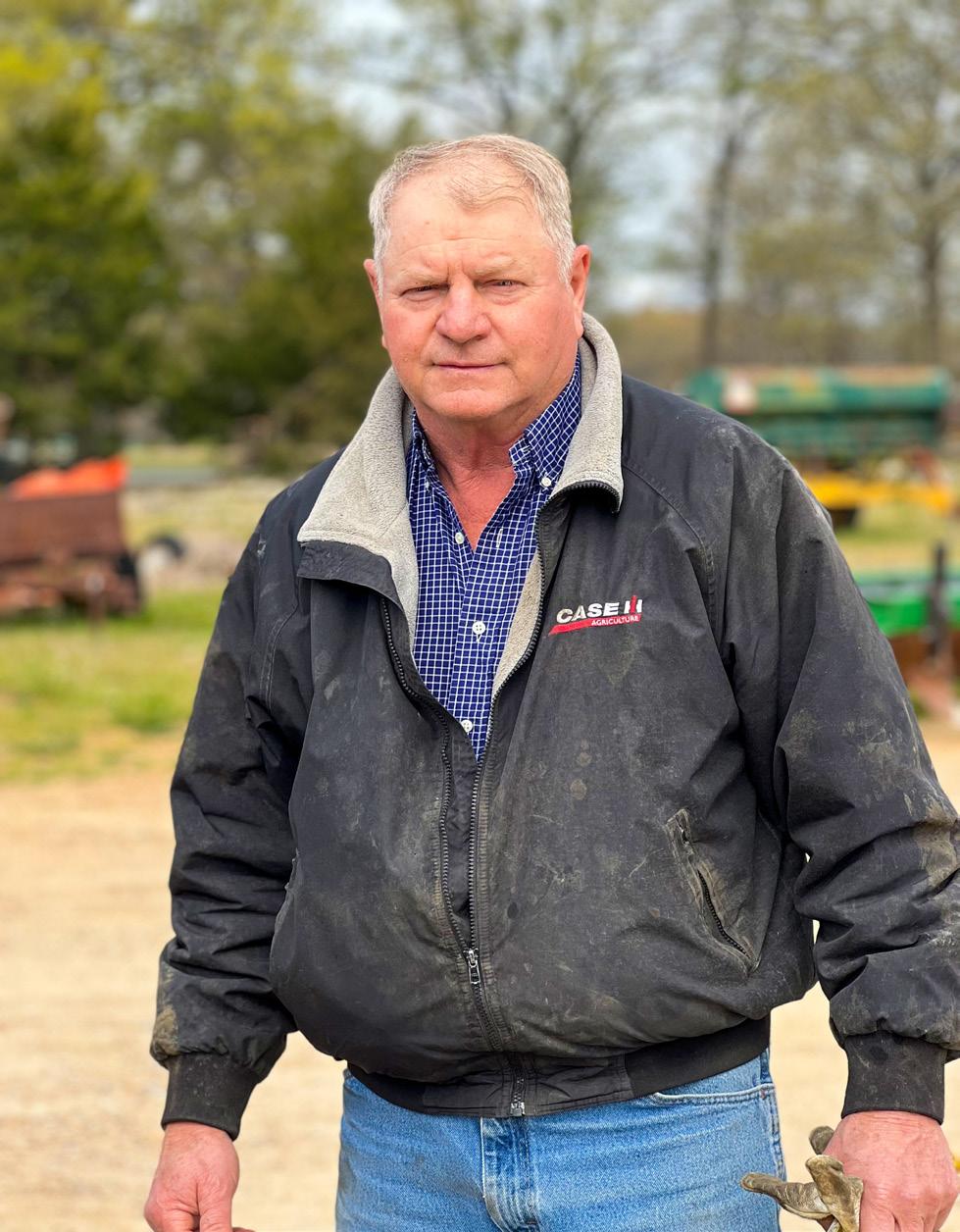
DAVID BAUSCHLICHER DISTRICT 4

JERRY BOECKMANN DISTRICT 3


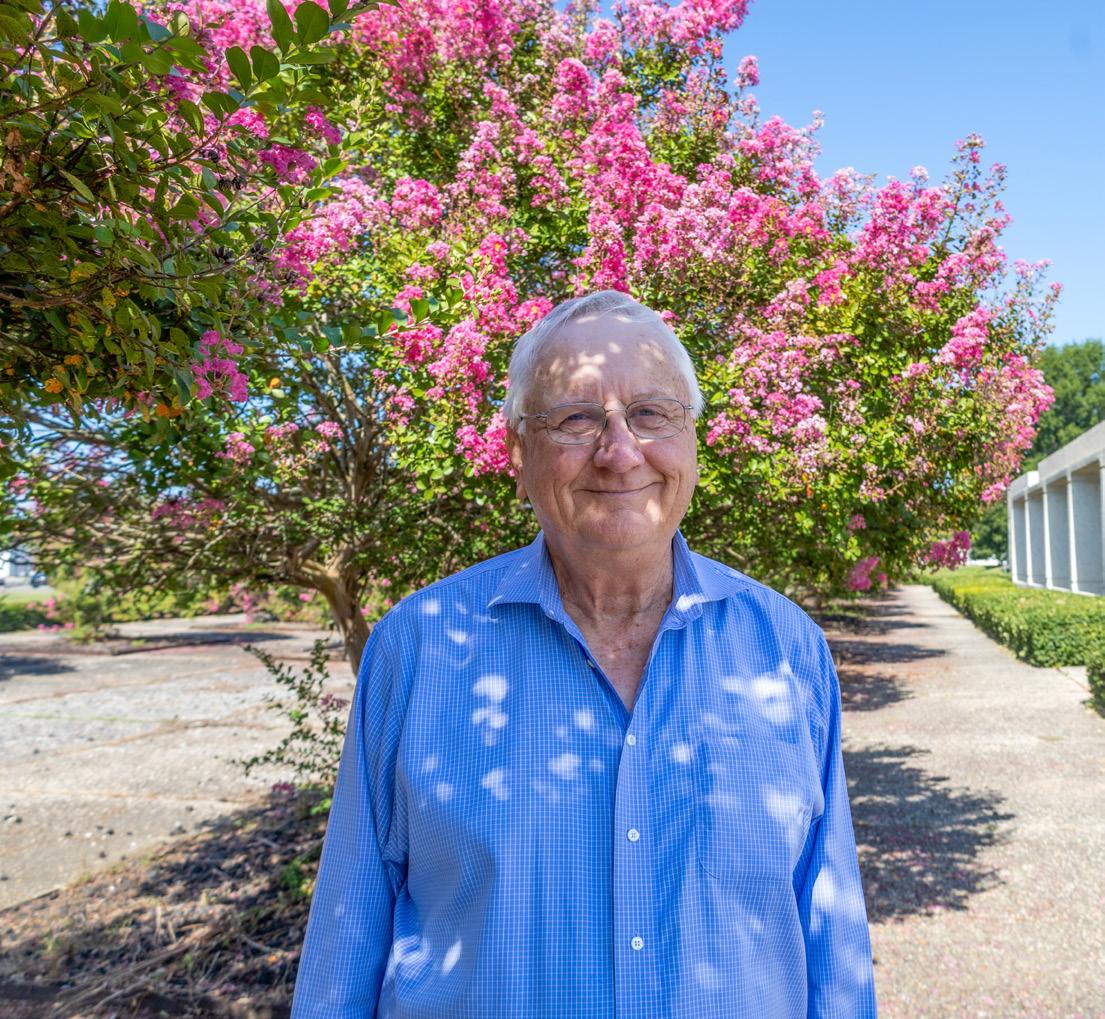
GARY SITZER DISTRICT 3
MARK AHRENT DISTRICT 4

BRITT ALLMON DISTRICT 4

CURTIS FOX DISTRICT 1

KENNY CLARK DISTRICT 2

ROGER POHLNER DISTRICT 3
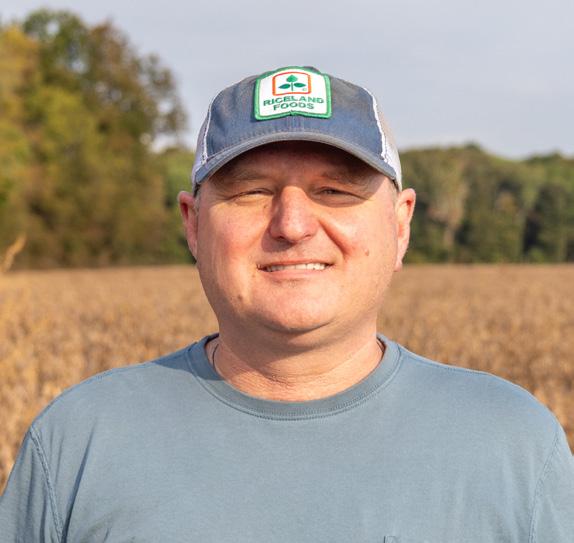
MARTIN HENRY DISTRICT 1
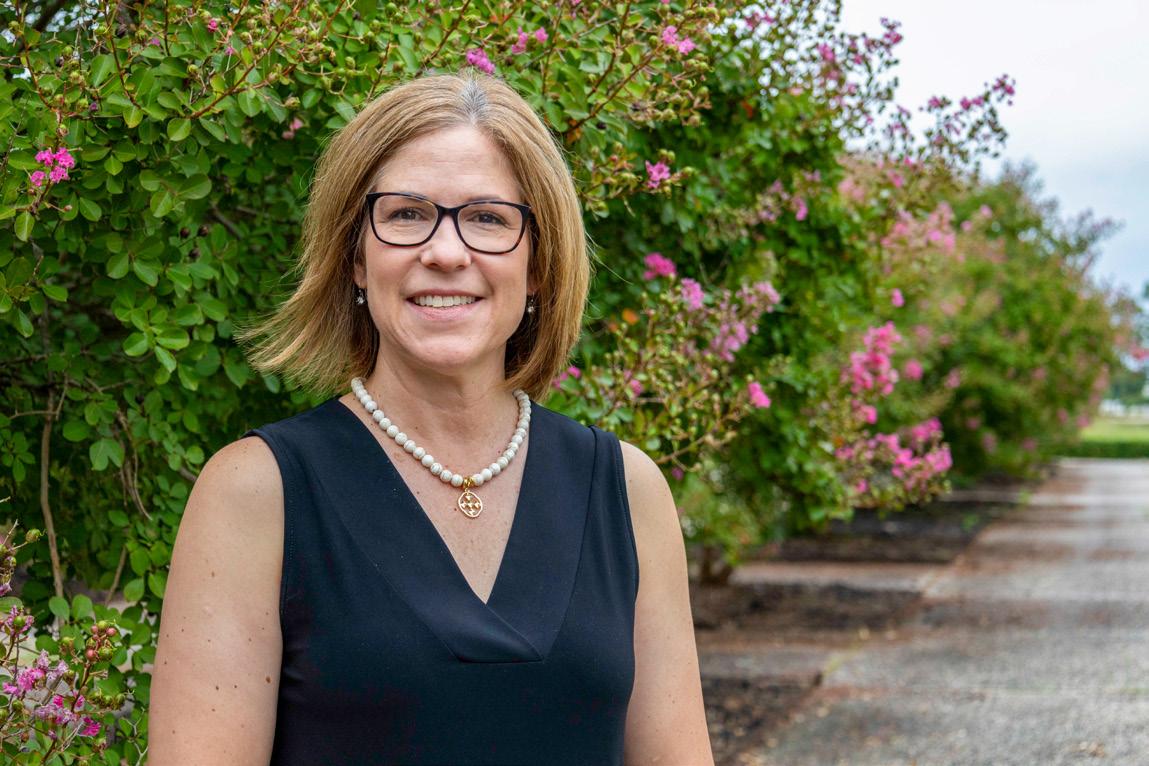

JENNIFER JAMES DISTRICT 2



BENJAMIN NOBLES DISTRICT 4
WAYNE WIGGINS, III DISTRICT 3

ZANE CLARK DISTRICT 4
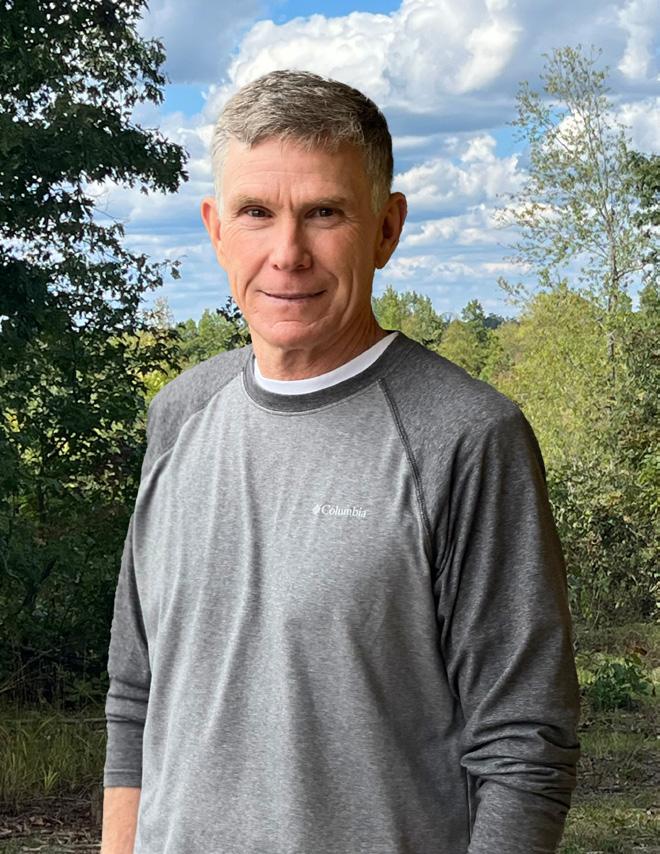
CURTIS WORLEY
DISTRICT 4
VACANT DISTRICT 1

Every member matters is certainly true of our marketing cooperative. For our sales team, we like to say “every customer matters.” 2025 found us focused on reorganizing our sales team in several key areas, and as we finish one fiscal year and begin another, we are excited about the players we have on the field. In many ways, our sales team serves as the face of the company to all of our diverse customer base. Setting and pursuing targets, maintaining relationships, and exploring new business is part of our daily focus on the sales team. Results from these efforts allowed us to finish at 93 percent of our target for the year.
The smallest cattle herd in the U.S. in over 50 years has presented challenges to our coproducts sales division. However, through collaborative efforts, we have ultimately expanded our customer base and successfully moved our product throughout the year. Our Ingredients Division has absorbed management of our Coproducts Division, and we anticipate positive results through increased strategic focus and collaboration among this team. Ultimately, we will be pursuing additional revenue.
Although the Soybean and Oil Division faced increased competition due to an expansion in U.S. crush capacity, the business remained profitable despite an extremely challenging year. However, recent policy changes in Washington are expected to provide a lift to crush margins in 2026, and we anticipate a strong rebound for this business unit.
Iraq’s business was inconsistent during the fall of 2024 due to financing issues within the country, but as 2025 began, Iraq became a consistent buyer for our long grain rice. Thanks to the efforts of our Export Division, including numerous meetings with the White House, State Department, and several other government officials, we are optimistic that Iraq will be a steady market for us in the year ahead.
The tariff trade war that emerged in January 2025 has yet to yield positive results for Riceland. While we remain hopeful that Japan, the EU, and other trade deals will lead to more U.S. rice shipped around the world and fewer imports brought into the country, the most immediate impact has been a reduction in our business with Canada.
Our foodservice business remains a key focus of the sales team, and we reorganized the department in 2025. Demand for this sector remains strong, and we anticipate strong growth for this channel in the coming year.
We are pleased to announce that the question, “Why can’t I find Riceland rice at Wal-Mart?” has been answered. Riceland-branded products are now available on the shelves at all Walmart stores across Arkansas, marking a significant milestone and opening up exciting opportunities for our brand and our members.
BEN NOBLE EVP, CHIEF OPERATING OFFICER
Riceland Foods has over 100 years of history, and the cooperative’s legacy is centered on building Common Ground – the land we farm, the communities we serve and the values we share. As the largest miller and marketer of rice in the U.S., our cooperative story continues to resonate with members, employees, customers, and consumers alike.
This past year, our marketing and communications team focused on what matters most: trust, connection, and shared purpose. Whether telling stories from the field, strengthening our internal culture, or supporting the brand in the marketplace, every campaign reflected our cooperative spirit. We didn’t just market rice — we elevated relationships, unity, and community. We focused on building Common Ground, where every member matters.
We spent time in the field with members to capture the full lifecycle of soybeans and spotlight the benefits of cooperative membership through exclusive RF Insights content.
With agriculture policy rapidly evolving in Washington, D.C., demand for government affairs updates grew, and our team spent time developing “News & Views” videos to keep you informed. We revamped the Grainiacs podcast, featuring cooperative updates like the new base capital plan and expert voices such as Jarrod Hardke and Dr. Ford Baldwin.
Other shared highlights include:
• Launching industry breakout sessions during the 2024 Annual Meeting.
• Over $4.2 million in value delivered to participants in the Riceland Carbon Ready ProgramTM.
• The continued impact of the Riceland Foundation in rural communities across Arkansas and Missouri.
The Grow Good Employee Recognition Award marked its fifth year with five new categories to honor team members for their service and dedication. With over 120 nominations, we celebrated the exceptional contributions of employees across the organization.
We also supported:
• Engaging employee storytelling on social media.
• The HR team’s summer internship program outreach.
• A quarterly, all-employee newsletter to keep every Riceland location informed and connected. We tapped into customer data to better align with sales goals, creating channel-specific industry insights and partnering with retailers to showcase Riceland’s products and cooperative story.
Highlights include:
• Collaborations with influencers in key markets, driving a measurable increase in consumer awareness.
• The launch of a consumer e-newsletter, bringing our story — and our members’ — directly to households across the U.S.
In every message shared, story told, and connection built, we found ways to bring our members, employees, customers, and consumers together. In FY25, our marketing wasn’t just seen, it was felt. And as we look ahead, we’ll continue to build trust, pride, and purpose in everything we communicate — so that for generations to come, you can always find Common Ground with your cooperative.
ASHTEN ADAMSON VP, MARKETING & COMMUNICATIONS
Riceland Foods Inc.’s milling operations were down approximately 1.4% in FY25, compared to FY24.
Rice milling yields were lower than expected across the mid-south region. The soybean crush volume was down approximately 6% in FY25 compared to FY24 as a result of challenging markets and extended scheduled maintenance in the soy oil extraction area. Safety performance remained strong, with all areas operating below comparable industry OSHA recordable accident rates.
Our strategic technology investments have yielded significant results. The automated data acquisition systems at Waldenburg and New Madrid have enhanced operational accountability and preventive maintenance. In addition, Waldenburg’s successful testing of an automated device to control milling degree, which is now being expanded, is a testament to our commitment to optimizing whole kernel yields and product value.
At Stuttgart Rice Division, our employees’ dedication to optimization in packaging, bagging, and warehousing has resulted in a significant achievement. Their efforts have led to approximately $1.6 million in annual cost savings, a testament to our collective commitment and hard work.
Work is ongoing to define and refine Riceland’s long-term capital investment strategy, with updates to the proposed 7-Year Plan. Daniel Bryant was promoted to Project Engineer to assist Jeff Madden and Mason Erwin in leading project management for Grain Drier network investments. The Rice Division is also focused on rice hull grinding projects at Jonesboro and New Madrid. Meanwhile, the Soybean Division team remains committed to identifying an effective strategy to replace the aging oil extraction and distillation systems with optimum capital investment.

Employees across all locations participated in a range of training events, seminars, tradeshows, expositions, audits, and other initiatives focused on employee growth and development. A thorough review across all operations is underway to improve succession planning, reduce risk, and provide stable work environments.
A focus on utility savings exceeded $970,000, including over $170,000 from natural gas transport during harvest and more than $800,000 from electrical rate restructuring following the shutdown of the Stuttgart Hull Burner/Cogeneration Facility.
Our unwavering focus across all operations has been and continues to be on improving returns and service for each member. This commitment ensures that we remain a reliable and trusted partner in the industry.
CHARLES BROWN VP, MILLING & MANUFACTURING
Rice acres increased again in 2024 as tight stocks brought attractive prices compared to other crops. This was the first time we had seen year-over-year increases in rice acres in over 10 years. Rice field yields were exceptional, setting new records in Arkansas and Missouri.
Rice acres in 2025 are down only slightly in Missouri and down 11% in Arkansas. Rice export demand was favorable for milled rice during the 2024 crop marketing year; however, the rough rice export market declined by nearly 30%, as low milling yields and competition from South American origins provided opportunities for the U.S. to lose market share.
The 2024 harvest marked three straight years of challenging low water levels on the Mississippi River. The industry was better prepared for the challenges and experienced less disruption than in the previous two years.
Dredging efforts during the low water of 2022 and 2023 continued to pay off.
The soybean futures market dropped throughout the 2024 crop marketing year and then rallied near the end. Soybean crush margins were relatively strong for the 2024 crop; however, continued uncertainty regarding biofuel policy and tax incentives has led to a recent decline in crush margins. Reaching the full potential of biofuel demand will be key to a decent soybean market, especially in light of the ongoing tariff and trade issues with China. Soybean meal demand has been good despite increasing production and concerns of oversupply.
The grain merchandising team is very thankful for every member’s patronage and looks forward to navigating this year’s marketing challenges with you.
VP, GRAIN SALES AND PROCUREMENT
For Nick Kelley, Senior Director of Riceland’s Drier Division, finding common ground starts with listening.
Whether it’s a farmer in the field, a manager at a facility, or someone in the office, he believes every perspective matters. By taking time to understand one another and stand shoulder to shoulder in pursuit of a shared purpose, Nick says that’s when things really start to click.
“We don’t just find common ground, we cultivate
it. From farmer to field, from employee to mill,
we’re feeding the world together.”
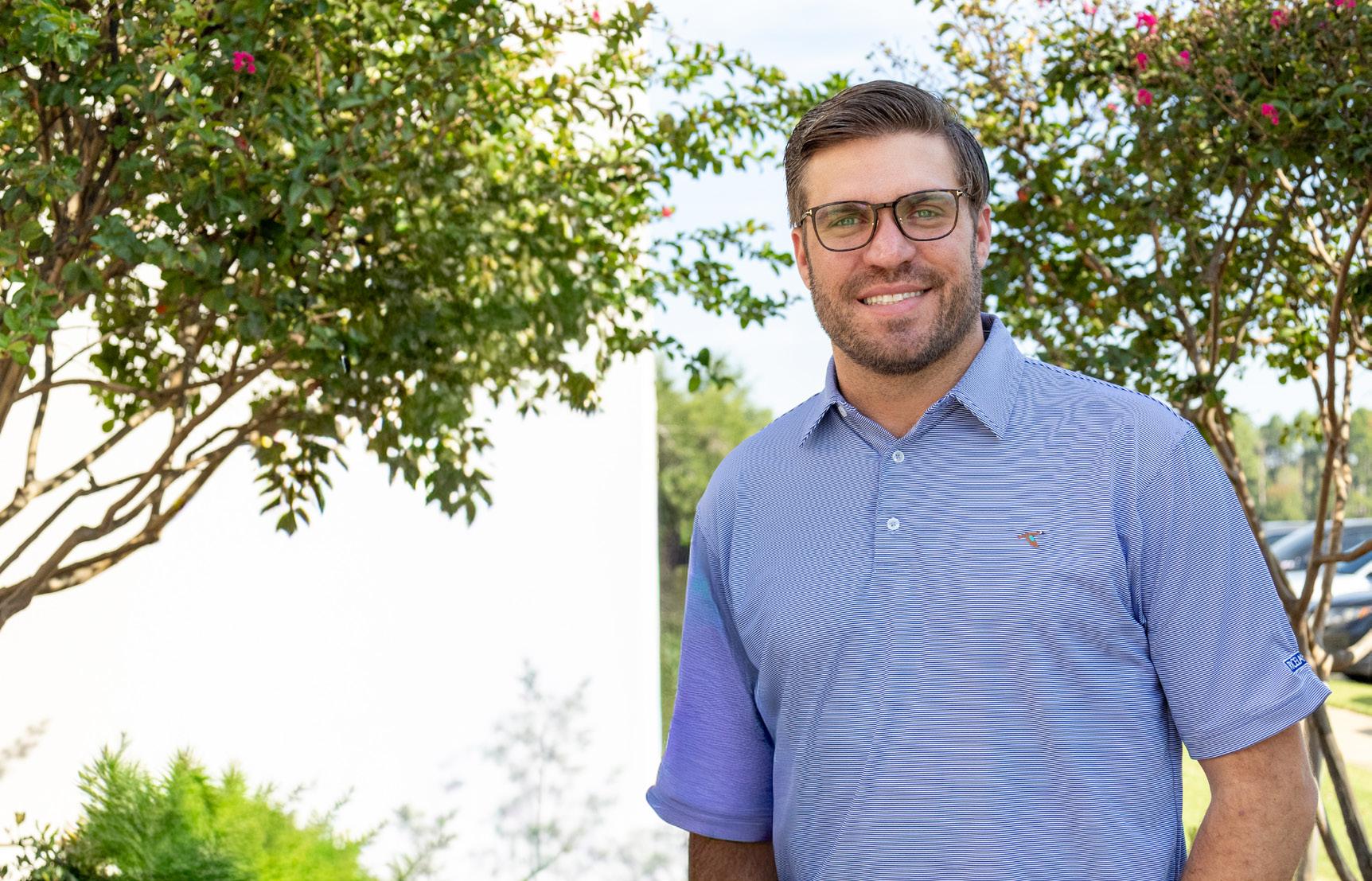
NICK KELLEY SR. DIRECTOR, DRIER DIVISION
CRAIG PARR CHIEF FINANCIAL OFFICER
Riceland Foods reported net revenue of $1.154 billion for the 2024–25 marketing year, a 13% decrease from the prior year’s $1.330 billion. Despite the revenue decline, consolidated pre-tax income improved significantly, increasing 118% year-over-year, driven by exceptional performance in the rice division and further supported by a fourth consecutive year of profitability in the soybean division.
Consolidated pre-tax earnings totaled $4.357 million, which includes patron distributions of $709.161 million. Partnership combined earnings reached $4.45 million, with Riceland’s share at $2.22 million, and distributions back to Riceland from the three partnerships totaling $2.0 million.
Riceland’s seasonal pool performance exceeded the USDA price in all three categories. The long grain rice pool returned an average gross payment of $6.58 per bushel, slightly below last year’s $6.69 but above the USDA average of $6.30. Medium grain rice averaged $7.07 per bushel, up from $6.16 last year, and above the USDA average of $6.84. Soybeans returned $10.34 per bushel, down from $12.74 a year ago but above the USDA average of $10.00 per bushel.
Targeted capital deployment remains a priority. Over the past five years, Riceland has reinvested $127 million into operations to strengthen member services and advance strategic objectives. Our balance sheet continues to demonstrate resilience, with improvements in working capital, equity, leverage, and liquidity compared to a year ago. As of July 31, 2025, working capital stood at $193.7 million, the liquidity ratio was 2.11x, and members’ and patrons’ equity improved to $318.8 million, up from $301.3 million the prior year. Total assets closed at $696.7 million, compared to $724.5 million on July 31, 2024.
Looking ahead, Riceland Foods enters the new marketing year with a respectable financial
foundation and a clear strategic focus. Our commitment is to deliver sustainable profitability through operational discipline, cost efficiency, and targeted reinvestment in areas that create the greatest value for our membership. By concentrating on core strengths and performance excellence, we will continue to position Riceland for long-term success.
CAPITAL DEPLOYED TO SERVE MEMBERS
$127 MILLION
OVER LAST 5 YEARS
TOTAL DISTRIBUTION TO PATRONS
$709.2 MILLION 2024-2025



July 31, 2025 and 2024 (IN THOUSANDS)
Current Liabilities
Commodity loans
Current maturities of long-term debt
Accounts payable Trade Other
Distributions due to patrons
Total
Contract liabilities
Current maturities of operating lease liabilities
Current maturities of finance lease liabilities
Other current liabilities
Total current liabilities
Long-term Liabilities
Operating lease liabilities
Finance lease liabilities
Interest rate swap agreements
Long-term debt, less current maturities
Other long-term liabilities
Total long-term liabilities
Members’ and Patrons’ Equity
Class “A” stock
Base capital credits
Retained earnings
Accumulated other comprehensive income – pension
Accumulated other comprehensive loss – interest rate swap
Accumulated other comprehensive loss - derivatives
Total members’ & patrons’ equity
Total liabilities & members’ & patrons’ equity
Years Ended July 31, 2025 and 2024 (IN THOUSANDS)
Revenue
Sales
Ending inventory, at net realizable value
Beginning inventory, at net realizable value
Total Revenue
Costs and Operating Expenses
Purchases
Processing, warehousing, packaging and shipping
Selling, general and administrative
Operating Income
Other Income (Expense)
Interest expense
Equity/(Loss) in earnings of unconsolidated joint ventures
Other, net
Income Before Distributions to Patrons and Income Taxes
Distributions to Patrons
Income/(Loss) Before Taxes
Income Tax Provision
Net Income/(Loss)
In a year marked by partisan divisions and legislative delays around the long-overdue Farm Bill reauthorization, Riceland has remained focused on advocating for policy solutions that offer farmers and agricultural businesses, like ours, meaningful relief and greater risk assurance for the future. Despite the absence of a full 2023 or 2024 Farm Bill, we’re proud to report that many of our top policy priorities have found a home in the 2025 budget reconciliation package, known to many as the “One Big Beautiful Bill.”
This critical legislation incorporates several significant wins for our farmer-owned cooperative and its diverse membership base. Some of these top priorities include:
INCREASED PRICE LOSS COVERAGE (PLC) REFERENCE PRICES
PLC is a key farm safety net program that provides support when market prices fall below a set threshold, known as the reference price. For years, these reference prices have remained outdated and failed to keep pace with rising input costs. Increasing them has been a long-standing priority, as it ensures the program better reflects the economic
realities our farmers face today and offers stronger protection during periods of low commodity prices.
UPDATED PLC REFERENCE PRICES
RICE
SOYBEANS CORN
COTTON
$7.60/ bu
$10.00/ bu
$4.10/ bu
$0.42/ lb
EXPANDED PAYMENT LIMITATIONS
The payment limitations were increased from $125,000 to $155,000, with future adjustments being tied to inflation. Limitations cap the amount of government support a single operation can receive. Increasing these limits is important because it allows larger farms to access necessary risk protection without penalizing their scale, while still ensuring smaller farms remain eligible and supported. This change reflects the growing size and complexity of agricultural operations and helps provide more balanced access to safety net programs across the board.
EXTENSION AND PRESERVATION OF SECTION 199A( g)
This tax deduction, which is generated at the cooperative level and passed through directly to members, is a substantial financial benefit for Riceland members. This provision, being made permanent, allows members to lower their tax liability, therefore keeping more of their hard-earned cash to invest in their operations. This strengthens rural communities and ensures member-owners continue to benefit from their investments in the cooperative. Its preservation is essential for maintaining the cooperative advantage in an increasingly competitive marketplace.

SCAN
These wins didn’t come easily. These achievements are the result of years of dedicated efforts by Riceland and other agricultural advocates working tirelessly to support bipartisan solutions that prioritize American farmers, agricultural businesses, and the rural communities we serve.
While the passage of a new Farm Bill is still uncertain and we continue to operate under an extension of the 2018 legislation, we are hopeful that the successful inclusion of these key provisions in the reconciliation package has laid the foundation for the passage of a “Skinny Farm Bill” later this fall.
What’s important is that these developments don’t just help one crop, one region, or one type
of member - these policy wins bring value to everyone. They strengthen our ability to manage risk, bring more stability to the markets, and help protect the financial health of the entire cooperative. In a challenging political climate, we’re encouraged to see legislation that prioritizes farmers, cooperatives, and the rural communities that support and depend on agriculture. This focus is essential to sustaining our way of life and ensuring a strong future for the industry that we know and love.
EVP, CHIEF OPERATING OFFICER
VP, GOVERNMENT AFFAIRS & SUSTAINABILITY
As a 2025 graduate of the Riceland In-Depth program, Misty Morris gained a firsthand look at how Riceland’s government affairs team advocates for farmers at both the state and national level. Her experience offered a new appreciation for the behind-the-scenes work that ensures members’ voices are heard where it matters most.
She walked away with a deeper understanding of how policy decisions directly impact agriculture and the communities that depend on it.
“I am proud to work for a company that not only provides essential services and markets for our farmers, but also stands up for them, ensuring their needs and challenges are represented at the highest level.”

Risk management, a comprehensive strategy that includes safety, quality assurance, customer compliance, insurance risk management, employee benefits, legal and regulatory, and corporate governance, is a testament to our commitment to reducing risks that might cause harm to the cooperative, its members, employees, or customers. Here’s a glimpse of the dedicated work our teams have put in to strengthen your cooperative in FY25.
INSURANCE RISK MANAGEMENT
The team renegotiated Riceland’s all-risk insurance program, increasing coverage in many areas and reducing total premium spend by 15 percent—a huge feat in the current insurance market. The team did not obtain this result by skimping on coverage or using questionable insurers. In the last three years, the team has focused on building relationships with insurers across the globe and improving Riceland’s internal risk management practices. The hard work paid off this year. In addition to the renewal success, in January, the team favorably resolved one of the largest property insurance claims in Riceland’s history.
In FY25, the team committed to keeping the momentum it has built in reducing OSHA recordable incidents. Safety and operational staff must work hand in glove to mitigate risks that could cause employee injuries. To arm our
staff with the knowledge and skills needed to support our goal, the safety team sponsored an OSHA 30-hour General Industry Safety Training course. 68 Riceland employees completed the course. The course was split into a four-day session in Jonesboro and another four-day session in Stuttgart to allow personnel from Riceland’s entire footprint the opportunity to attend. In addition to learning about OSHA regulations pertinent to our industry, the classes were split into different teams and competed to develop the best safety program enhancements for our company. Participants learned valuable skills to reduce risks to our people, products, and property. This training is one example of efforts to move Riceland’s safety culture in the right direction this year, and the proof is in the pudding. Riceland’s OSHA recordable incidents continued to trend down in FY25 and were 20 percent below the published rice industry average. Way to go, safety team!
Riceland’s goal is to produce a quality, safe food product that our customers trust. The QA and compliance teams play a pivotal role in helping operations achieve this result consistently. This year, the team focused on enhancing our food safety defense. In April, we organized training on the proper development and implementation of animal food safety plans, ensuring that Riceland grains used for animal feed are safe and meet all regulatory requirements. Management staff from all divisions participated, demonstrating our collective commitment to food safety.
In June, the team also rolled out a more robust root cause analysis procedure called the 5-Whys, with an emphasis on reducing repeat issues. Additionally, the team continued its successful food safety culture initiative to increase internal awareness about how
Riceland’s food safety programs ensure product quality for our consumers. The team asks employees questions about our monthly food safety topic and awards them a certificate for correct answers. The program expanded this year to include operations management staff, emphasizing the importance of top-down food safety culture. Together, these programs enhance our ability to provide high-quality products to our customers while reducing the risks and costs associated with customer complaints and returns.
This year, the team concentrated on reducing the financial risks associated with our legacy employee benefits programs. For example, the team annuitized about 15 percent* of the Riceland Foods, Inc. Employee Pension Plan (*by dollar value). The Pension Plan used Pension Trust Assets to purchase annuity contracts from an insurer, guaranteeing payments to a specific subset of pension

participants. This liability then transferred off Riceland Foods, Inc.’s books. That explanation makes it sound simple; however, gathering data, getting proposals from nearly a dozen insurers, and selecting the best insurer—all under significant time pressure—took careful coordination between many departments. To be clear, Riceland’s employees who are owed a pension still get the amounts due. However, for the annuitized portion, this mechanism eliminates the risk to Riceland related to fluctuations in asset values and interest rates, which could increase Riceland’s pension costs, thus affecting its financial bottom line. Notably, the annuity project also creates savings on the total cost related to those participants by eliminating some taxes and fees that Riceland would otherwise pay. So, this is a win all the way around.
VICE PRESIDENT & LEGAL COUNSEL
On February 18, 2025, Newport Riceland employees Jimmy Brumley, Kurt Briggs, Joseph Clark, Josh Fears and Lawrence Tollerson assisted Jackson County Emergency Responders in a successful bin rescue on a nearby farm.
Two farm employees were partially submerged in a grain bin when the rescue teams arrived. Years of Riceland rope rescue training and mock emergency exercise drills (pictured left) allowed the team to utilize their experience and abilities without hesitation resulting in the best outcome possible.
Thank you Team for going above and beyond and making Riceland proud!
JEREMY HANNUM DIRECTOR OF CORPORATE SAFETY
This year, Human Resources embraced the theme “Common Ground: Every Member Matters”—a reflection of our deep belief that in agriculture, as in people, growth starts from the ground up. Whether we are welcoming new employees, equipping teams with knowledge, or preparing for the future, every effort has been rooted in the understanding that our people are our most valuable asset. Our HR activities this year centered on creating shared learning experiences, refining processes, and laying a strong foundation for upcoming transformations, including the 2026 launch of our new Human Resources Information System (HRIS), Dayforce.
Training and development remained a cornerstone of our strategy in FY25. We expanded our Lunch & Learn series to a monthly schedule, offering sessions on topics ranging from leadership, professional and personal development. This initiative generated over 300 total participant hours, with post-event surveys indicating a 95% satisfaction rating. Building on this success, we are preparing to expand into skill-based micro-learning modules that will be accessible on-demand for both mill and drier network employees.
Another major milestone was the launch of our standardized, interactive New Hire Orientation program in the third quarter. This initiative provided every new team member with an immersive introduction to our company history, values, and operational culture. As a result, over 92% of respondents reported being “Very Satisfied” or “Satisfied” with the orientation program signaling a stronger sense of connection
and readiness among new employees.
This year also brought a heightened focus on external audit preparation. By partnering closely with our operations teams, we completed a comprehensive review of personnel files and training records. This effort resulted in a 100% completion rate of all required documentation in our latest SMETA audit—an achievement that underscores our commitment to operational excellence and regulatory readiness.
In parallel, we are executing our planning for the 2026 HRIS implementation. After completing vendor selection and requirements mapping, we turned our attention to building clean, complete, and consistent HR data through process standardization. A cross-functional HRIS implementation team has been formed to ensure a smooth transition to the new system, with careful planning designed to avoid disruptions to daily operations. This will be a significant project that will pay dividends in efficiency.
Looking ahead, our priorities for FY26 include the successful launch of Dayforce, continued expansion of development opportunities, and enhanced engagement and retention strategies that recognize contributions from every corner of the company.
At Riceland, we understand that no single seed yields a harvest on its own. It is the combination of healthy soil, steady care, and a strong community that drives growth. This year’s progress shows that when we find common ground and recognize that every member matters, we cultivate stronger teams and sow the seeds for future success. I am grateful of our amazing Human Resources team who show up everyday to help cultivate the business.
LIONEL RILEY CHIEF HUMAN RESOURCES OFFICER
Our members are at the center of everything we do, and this year we continued to strengthen the ways we connect, communicate, and provide value. From launching a refreshed website to creating educational opportunities, our goal is to meet members where they are; online, in the field, or in the community.
One of the biggest milestones this year was the launch of our new website. The update provided a much-needed refresh, while maintaining the functionality our members rely on every day. At the same time, we added new features to enhance communication and open new opportunities for learning and engagement.
We also continued to expand our communication channels with the Grainiacs podcast, designed specifically for farmer members. Each episode
brings timely insights from experts who understand the challenges for today’s farmers. Whether you’re in the tractor, at the shop, or on the go, Grainiacs is a convenient way to stay informed and connected.
In addition, our In-Depth leadership class remains focused on equipping the next generation of cooperative leaders. This program helps participants strengthen their communication and decision-making skills while deepening their understanding of how the cooperative works. It’s an investment not only in each participant, but also in their farms and communities.
Together, the new website, podcast, and leadership program highlight our commitment to keeping members informed, engaged, and prepared for the future—because when our members succeed, our cooperative grows stronger.
DIRECTOR OF MEMBER RELATIONS
Daniel Gaddy, a 2024–2025 graduate of the Riceland In-Depth program, says the experience gave him a new perspective on leadership and the role of the cooperative.
Beyond the knowledge gained, he values the relationships and opportunities that will guide his future as a farmer saying, “I had no idea how much work went into taking our crops from the field to the final product. I’ve learned to think bigger, make wiser long-term decisions, and appreciate how many people it takes to make the cooperative work.”
“The friendships and connections I’ve built through this program are priceless, and I know they’ll continue to shape my leadership and success moving forward.”


At Riceland, sustainability is not just a buzzword; it’s a commitment that is gaining momentum. In 2024, we disbursed over $4.2 million to farmers involved in the Riceland Carbon Ready™ program, a clear demonstration of the real value we provide to our members. Since its inception in 2022, we have distributed nearly $8.5 million to rice farmers, and we aim to continue providing such tangible benefits. In 2025, we expanded on that success by adding reduced-cost access to grain bin management systems through API Grain/OPI.
Given the current state of the farm economy, the phrase “every dollar matters” means even more for our farmer members. While we understand that successfully operating a farm involves more than just financial support, we believe that these fiscal benefits offer valuable incentives for adopting sustainable production practices and investing in your farm’s future.
For Riceland member Jennifer McMeans, the Riceland Carbon Ready™ program, which she heard about through the cooperative, has been a game-changer.

It not only allowed her to showcase the sustainable practices she implements on her farm but also provides them with significant financial benefits. This program has been a perfect fit for Jennifer and other farmer-members, especially during these tough times for American farmers.
Riceland Carbon Ready™ has not only helped farmers from all over eastern Arkansas and the bootheel of Missouri but also fostered a sense of community within the entire supply chain. It’s about finding common ground and working together toward a sustainable future.
Our farmers have worked hard to conserve water, reduce emissions, and create habitats for waterfowl. But what comes next? The choices our farmer-members make in their fields have ripple effects throughout the entire food chain, affecting processors, packaging, and grocery aisles.
As companies purchase rice products from our cooperative—ranging from food manufacturers to pet food brands—they face increasing pressure from regulators, retailers, and consumers to demonstrate their products are sustainably sourced.
Through the Riceland Carbon Ready™ Program, our customers find a committed partner that can substantiate climate claims with real data, where Riceland farmers excel.
For more than 100 years, Riceland has been more than just a grain buyer; we have been your cooperative—built by farmers, for farmers. This legacy is not just a shared history, but a testament to the trust, shared values, and commitment to doing what’s right for our members. It’s the foundation of our growth across generations, and it guides us as we build towards the future.
When we launched the sustainability initiative, Ingrain Good™, we didn’t set out to create just another program. We wanted to provide all Riceland members with the ability to participate in value-added opportunities, and we think the Riceland Carbon Ready™ Program and API Grain/ OPI partnership are significant steps in that direction. We will continue searching for valuable opportunities that help keep Riceland and its members rooted in the communities they serve for years to come.
A staple across many cultures and cuisines - and after harvest, provides vital food for ducks and other waterfowl.

Rely on flooded rice fields for critical habitat and food during migration.
Essential for growing rice, and its careful stewardship is key to sustainable farming.
In 2024, program participants received an average of $20,000 in payouts. This equals around $30/acre for approved practices.
39.3 BILLION GALLONS OF WATER SAVED
$4.2 MILLION
On average, program participants measured an average of 30% water savings across enrolled acreage.
Flooded rice fields provide significant resting habitat and over 10% of the nutritional needs for waterfowl.
135.9K ACRES ENROLLED
71.2K ACRES
DEDICATED TO WILDLIFE HABITAT
In 2024, we saw a 62% increase in farmer enrollment, reflecting rising interest in sustainability that adds value without disrupting operations.

As we recently marked a significant milestone of 25 years of giving back to the communities where our members and employees reside and work, the Riceland Foods Foundation stands as a proud testament to our cooperative’s enduring commitment to social responsibility. Our mission remains steadfast-to make a meaningful impact in local communities, a legacy we can all be proud of.
The Foundation strategically focuses on four main funding categories: Agriculture and Environment, Youth and Education, Community and Culture, and Human Services. These categories were carefully chosen to align our funding with areas that directly benefit the communities we serve, fostering a brighter future and enhancing the quality of life.
In 2025, the Foundation took a significant step forward by launching a scholarship program aimed at supporting our farmer-members and employees, an initiative designed to assist students in furthering their education. With significantly more applicants than anticipated, the overwhelming response has inspired us to increase the number of scholarships awarded for the 2024-25 academic year. This expansion paves
the way for a future where more individuals can benefit from our support, fostering hope and optimism.
Riceland farmer-members and employees share common ground in the communities where we work and live. The Riceland Foods Foundation is unwavering in its commitment to invest in these communities, striving to improve the quality of life and create a positive impact for our cooperative.
Looking back on the past 25 years, I am reminded of the lives we have touched and the communities we have strengthened. It has been an honor to witness firsthand the transformative power of our giving. Looking ahead, we are excited to continue sharing the stories of the Riceland Foods Foundation’s impact and expanding on the incredible work that has been done. We believe that by investing in our communities, we invest in our collective future. We invite you to join us in this journey, whether as a partner, donor, or advocate, to help us build a stronger, more resilient, and thriving future for the communities we call home.
Together, we can make a lasting difference and cultivate together.
AUSTIN BROWN DIRECTOR OF SUSTAINABILITY EXEC. DIRECTOR, RICELAND FOODS FOUNDATION

Riceland members have the opportunity to designate a portion of their crop to help fight food insecurity across our region. Brandon Bauman, Arkansas County Riceland Member, embraced that opportunity, donating part of his harvest to the local food bank.
“I feel like it’s our duty, not only as farmers and landowners, but also as Riceland members, to help provide for those in need and address food insecurity.”
Brandon went on to say, “As members, we’re not just raising crops; we’re helping process and put food on the table. That’s part of who we are and what we’re called to do.”

UNIVERSITY OF CENTRAL ARKANSAS


ARKANSAS STATE UNIVERSITY

HARDING UNIVERSITY

UNIVERSITY OF ARKANSAS
ARKANSAS STATE UNIVERSITY, NEWPORT

UNIVERSITY OF CENTRAL ARKANSAS

UNIVERSITY OF ARKANSAS

UNIVERSITY OF ARKANSAS, MONTICELLO
ARKANSAS STATE UNIVERSITY

UNIVERSITY OF ARKANSAS

Now in its fifth year, the Grow Good Awards continue to celebrate team members who bring heart, purpose, and excellence to their work every day.
This year’s program brought in dozens of thoughtful nominations, each highlighting the dedication and impact of Riceland employees across the cooperative. We added five new categories to better represent our team’s work ethic, service and collaborative efforts.
Let’s celebrate the 2025 Grow Good Award Winners:

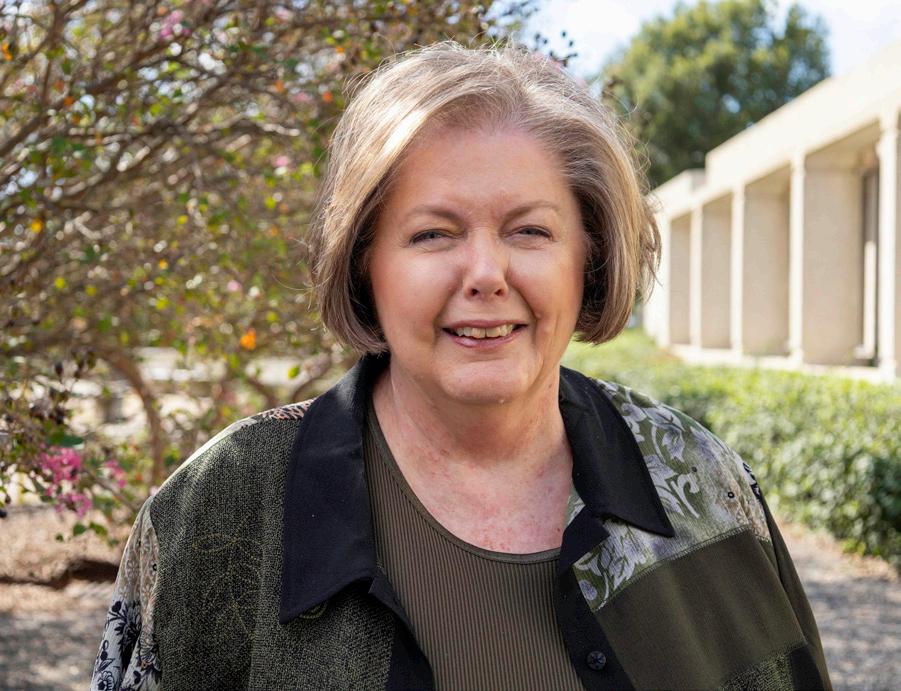
In honor of Arkansas Ag Hall of Fame recipient and longtime Riceland team member Carl Brothers, this award celebrates longevity. This award is given to team members who embody the Grow Good spirit with 20 years of service or more, and it celebrates how a person can give his or her all to the cooperative.
After over six decades at the company, what keeps Martha going is the love for her co-workers and for the cooperative as a whole. She really cares about Riceland and her team, who are like family.
Martha’s 63-year commitment to the co-op made her the ideal candidate to receive the inaugural Carl Brothers Service Award.
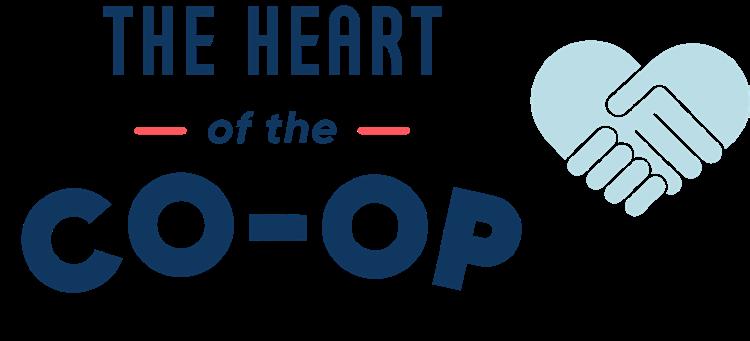
This award honors a team member who lives out Riceland’s mission in all they do. Whether they’re supporting our members, customers, employees, or other stakeholders, this individual brings heart, service, and purpose to every interaction.
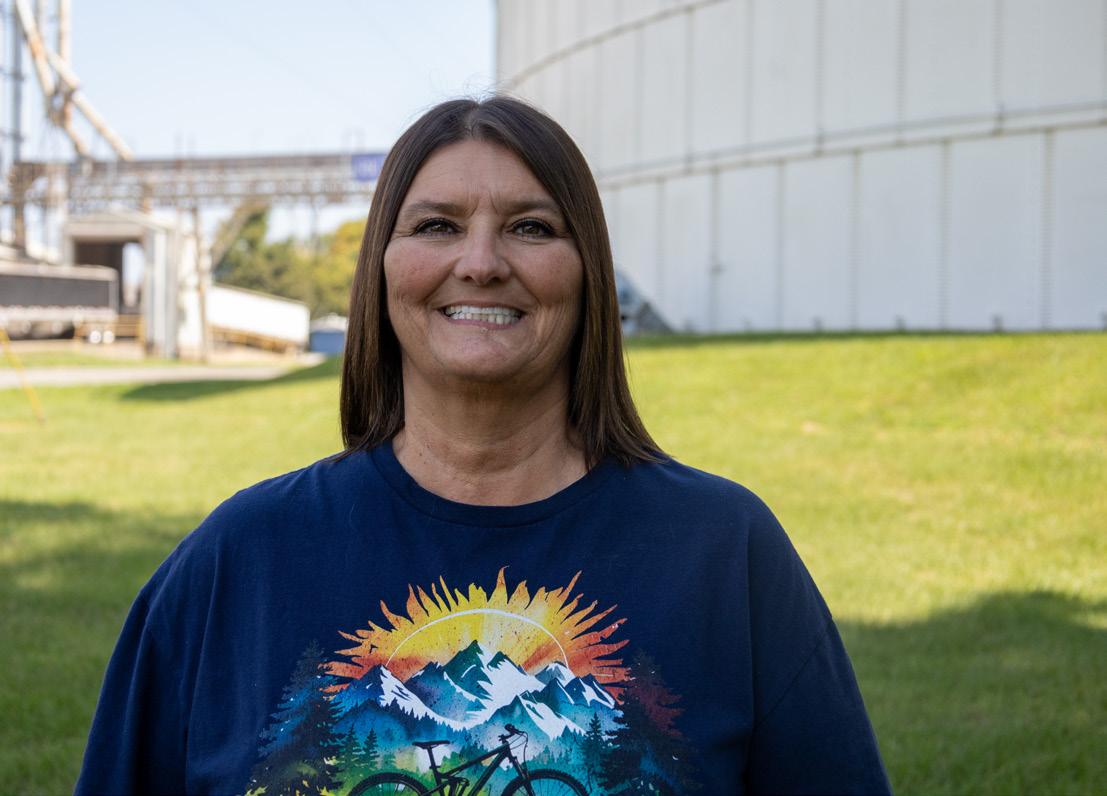
Gail’s enthusiasm, expertise, and genuine care for others make her a standout example of what it means to Grow Good.
Known for her deep understanding of marketing options and her people-first approach, she goes above and beyond to serve Riceland’s members and support her team. Whether she’s helping a farmer navigate the Riceland app or brightening her coworkers’ day, her dedication and positivity leave a lasting impression across the cooperative.


Recognizing a standout newcomer who has hit the ground running. This team member, new to Riceland within the last five years; brings fresh energy, a hunger to learn, and a drive to make a difference. They’re already showing signs of leadership and are well on their way to leaving a lasting mark.
For Blayze Byers, a soy extractor operator and 2025 Grow Good finalist, “growing good” means never standing still.
In just three years at Riceland, Blayze has worked his way from meal loadout to operator, driven by a desire to learn, improve, and take on new challenges. He takes pride in troubleshooting problems, mentoring new employees, and continually growing both as an individual and as part of the Riceland team.
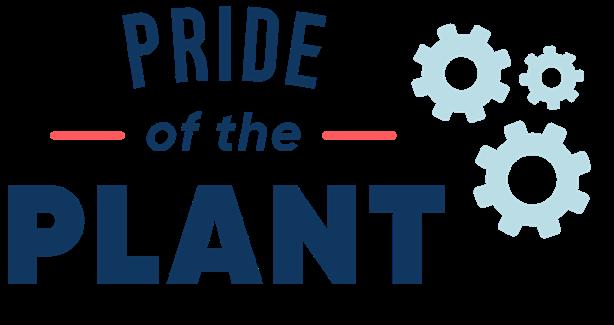
This award recognizes a team member who exemplifies precision, consistency, and excellence in operations. Whether it’s keeping the lines running smoothly, solving problems on the fly, or setting the standard for safety and quality, this individual is a master of their craft.
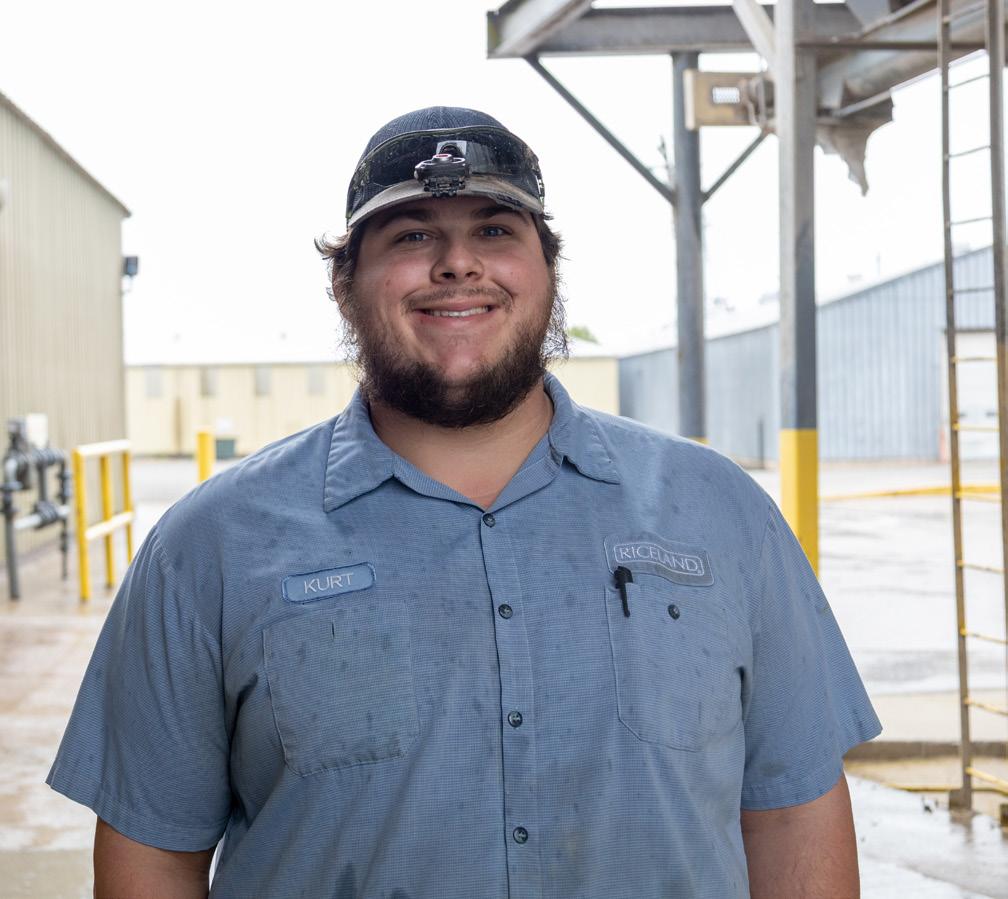
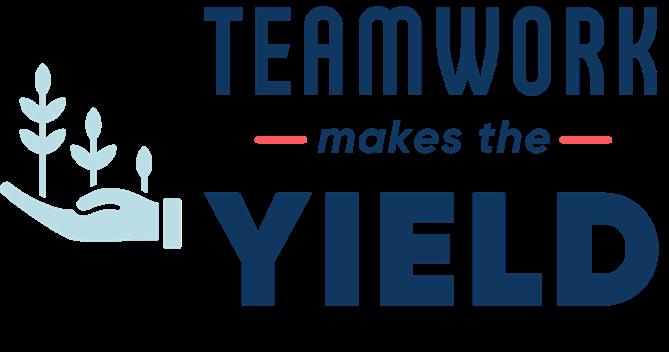
For nearly a decade, Kurt Briggs has been a steady and dependable force at Riceland Foods. Joining the cooperative soon after graduating, he has built a career defined by hard work, leadership, and a constant drive to learn.
Known for his calm under pressure, technical expertise, and care for his coworkers, Kurt embodies the spirit of Grow Good, leading by example and always putting people first.
This award celebrates a department or team whose collaboration sets the gold standard. Whether they work in milling, transportation, member services, or beyond, this team overcame challenges, met goals, and supported one another every step of the way.
Olyvia Harris, Tyangela Stigger, Angela Jeffrey, Derek Eason, Diane West, Tommy Laws, Ted Walls, Koby Cotton, Latasha Jenkins, Ms. Peaches, Shantel Williams, Michael Wingate, Tonya Fleetwood, and A.J. Higgins
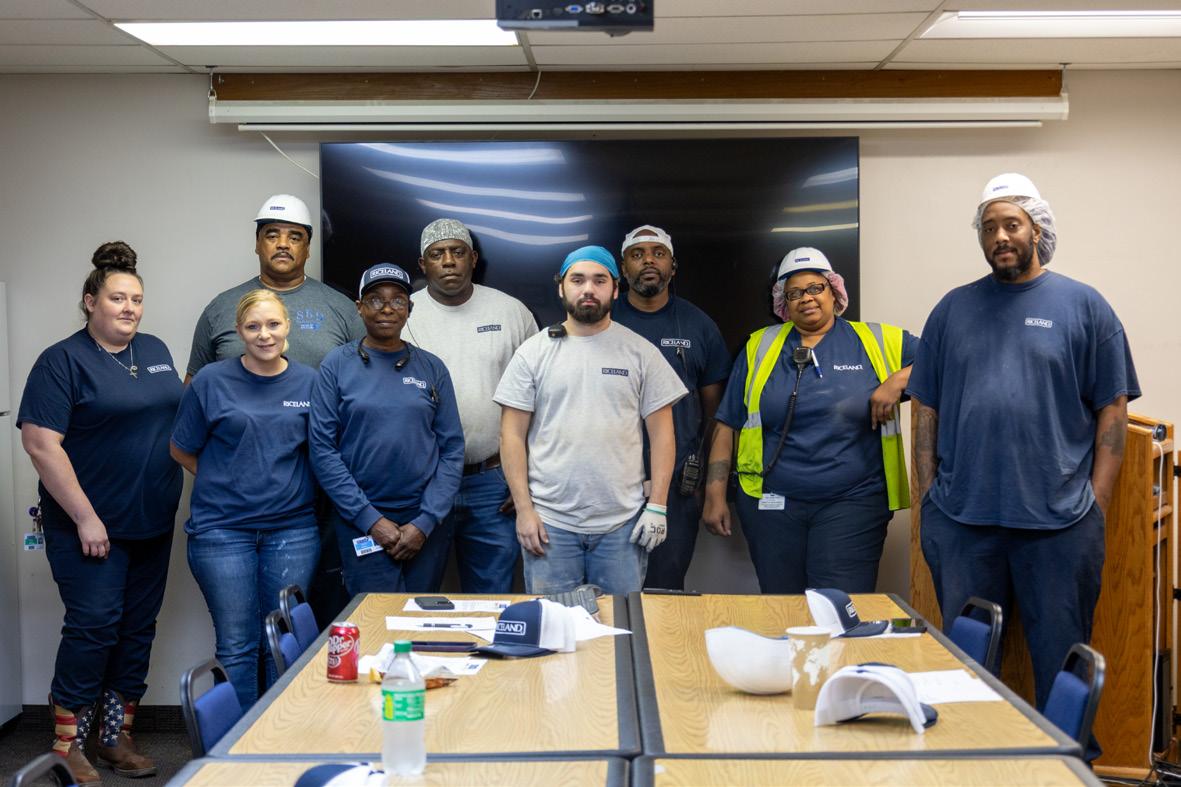

CORNING CORNING
300 W. WOOTEN CORNING, AR 72422
870-857-3582
DES ARC DES ARC
708 HIGHWAY 11 DES ARC, AR 72040
870-256-4125
DELAPLAINE DELAPLAINE
3342 AR-90
DELAPLAINE, AR 72425
870-249-3238
DUDLEY DUDLEY
10442 SOUTH ST. DUDLEY, MO 63936
870-624-5853

491 HIGHWAY 159 N. DUMAS, AR 71639
FAIR OAKS FAIR OAKS
870-382-4828 4 CR 503 MCCRORY, AR 72101 870-697-2277
GRIFFITHVILLE GRIFFITHVILLE
106 JONES ISLAND RD. GRIFFITHVILLE, AR 72060 501-323-4347
HAZEN HAZEN
1101 RICELAND LANE HAZEN, AR 72064
870-255-4531

HEADQUARTERS HEADQUARTERS
2120 S. PARK AVE. STUTTGART, AR 72160
870-673-5500
HICKORY RIDGE HICKORY RIDGE
201 S. FRONT ST. HICKORY RIDGE, AR 72064
870-255-4531
JONESBORO JONESBORO
216 GEE ST.
JONESBORO, AR 72401
870-933-8231
KNOBEL KNOBEL
755 MAIN ST. KNOBEL, AR 72435
870-259-3244
LITTLE ROCK LITTLE ROCK
6321 RANCH DR. LITTLE ROCK, AR 72223
501-485-7006
LONOKE LONOKE
815 W. 3RD LONOKE, AR 72086
501-676-6100
NEW MADRID NEW MADRID
918 NEW MADRID COUNTY PORT
NEW MADRID, MO 63869
870-259-3244
NEWPORT NEWPORT
200 PLUM ST. NEWPORT, AR 72112
870-523-6251
PARKIN PARKIN
109 CR 819 HWY PARKIN, AR 72373
870-755-5482
PENDLETON PENDLETON
271 HIGHWAY 212 E DUMAS, AR 71639
870-382-2198
POPLAR BLUFF POPLAR BLUFF
3295 CRAVENS RD POPLAR BLUFF, MO 63901 573-785-6821
STUTTGART STUTTGART
1102 GRAIN LANE STUTTGART, AR 72160 870-673-5454
TUCKERMAN TUCKERMAN
310 E. 1ST ST. TUCKERMAN, AR 72473
870-349-2254
WALDENBURG WALDENBURG
6854 HIGHWAY 956 WEINER, AR 72479
870-934-3015
WEINER WEINER
137 EWEN RD. WEINER, AR 72479
870-684-2217
WHEATLEY WHEATLEY
133 DENNIS ST. WHEATLEY, AR 72392
870-457-3211

